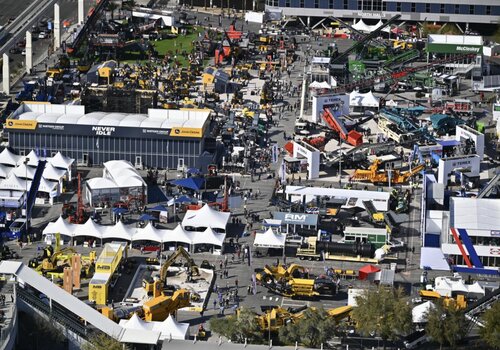One of the largest expenses for any organization that operates vehicles and equipment is fuel. Because fuel prices have been – and remain – volatile, organizations are looking harder at efficiency. They have begun to lean on proactive maintenance, operator training and the way they purchase fuel to help control fuel costs.
There is also a focus on fuel management – purchasing the right amount of fuel at the right price and determining the most cost-effective means of supplying vehicles and equipment: bulk fueling or retail fueling.
It may seem that the more fuel an organization consumes, bulk fueling would be the logical choice than retail fueling, says Roberta Wright, CEM (certified equipment manager), fleet contract administrator, City of Lynchburg, VA.
Buying fuel in bulk saves money and time – no waiting in lines, employees don’t have to handle fuel cards and the fleet doesn’t need to worry about recovering taxes, etc., she explains. But, she points out, this should not be confused with term-contract purchasing. Bulk fuel delivery simply means that an organization owns its tanks, pumps and everything in between.
To accomplish this successfully, there are many other considerations, says Wright. In her current position for 13 years, she oversees 1,200 pieces of equipment – of which 736 is rolling stock, as well as Lynchburg’s bulk fueling operation. She offers the following checklist to help ensure completeness when considering a switch from retail fueling to bulk fuel delivery.
- Does your organization have a permanent centralized operation (central fueling is a mainstay in bulk delivery) or does it move around geographically? If it is spread out, then bulk fuel delivery may not be for you, she says.
- Determine fuel needs. This will be dependent upon the number of vehicles and equipment, the amount of fuel they need, the number and size of fuel tanks on-site, etc., and whether your organization uses fuel as it is delivered. Today’s diesel fuels are mandated to contain a percentage of biofuel and this can cause problems over time, explains Wright. Fuel that sits can “grow” microbials which contaminate fuel. Contaminated fuel can damage fuel system components.
- Do you have the space? Parking areas, fuel receiving and dispensing facilities, spill containment and cleanup equipment, lighting, back-up generators, etc., are necessary for a bulk fueling operation.
- What are the upfront costs for installation of fuel storage tanks and fueling equipment (dispensing and monitoring systems, third party software, etc.), regular maintenance of the tanks and equipment and ongoing expense for federal, state and local rules and regulations compliance? Because establishing a fuel site takes time and money, Wrights says there needs to be adequate resources on hand.
- Realize that you are responsible for managing the quality of the fuel once it is put in your tank. The fuel should be tested before and after every delivery to check for water and other contaminates and tanks and fueling systems must be properly maintained.
- Can you assure fuel procurement and delivery – especially around peak demand periods, and plan for expected winter/summer fuel changes? Wright routinely bids out fuel loads to stay ahead, especially around weather events and end of periods such as winter or summer, plus she maintains close contact with local fuel vendors.
- Understand that spill containment and cleanup materials are mandatory, as is training for all involved employees. There is also triannual state DEQ (Department of Environmental Quality) inspections and an organization’s own annual inspections.
- Does having a bulk fuel contract make sense? A contract can “guarantee” supply and help protect against fuel price market fluctuations during the duration of the contract. However, if an organization does go with a contract, Wright recommends periodically reviewing the contract – a lesson she learned unintentionally. When the company that had Lynchburg’s fuel contract couldn’t deliver a load when required, Wright reached out to local fuel companies. She was able to get a load of fuel cheaper than the contracted load. Over time, she tested local fuel pricing several more times. Each time the price quoted was cheaper than the contracted price. Subsequently, the decision was made to break the city’s contract with its fuel supplier. A request for proposal (RFP) for fuel was issued that stated the contract would be awarded to three different business and they would have to compete on every load. With this contract she has achieved significant yearly fuel expenditure savings – up to $78,000, which is lower than many other localities and even the contracted State of Virginia price.
- Can automated fuel management technologies be integrated with fleet maintenance management systems? Doing so, Wright says, provides advantages over in-house manual processes and back-office systems. The integration eliminates human data entry errors, provides real-time visibility and control over fueling and produces comprehensive data to identify additional time and money savings.
The integration enables immediate, accurate and detailed data capture for each vehicle at each fueling session, she adds. This helps ensure consistent, routine vehicle and equipment maintenance. Plus, with real-time information, shops can better plan and manage their day-to-day operations.
The decision for any organization weighing the options between bulk fueling and retail fueling requires doing your homework, collecting and analyzing data and considering any and all consequences of the decision, Wright summarizes.
Subscribe to the CONEXPO-CON/AGG 365 weekly newsletter to receive more great stories like this.












